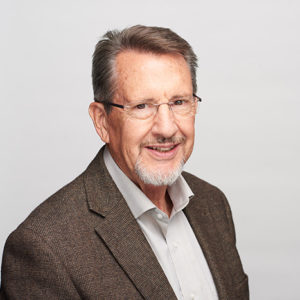
Who is Philip?
Philip DeVol is an international consultant who has been working with aha! Process since 1997. He used aha! Process concepts to make institutional changes at the addiction treatment center where he was the executive director for 19 years. During this time, he also coauthored Bridges Out of Poverty with Ruby Payne and Terie Dreussi-Smith. His book Getting Ahead in a Just-Gettin’-by-World is being used to engage people in poverty in the work of building communities where everyone can live well. It worked so well that DeVol used it as the basis for a Getting Ahead series for people returning to the community from prison, entry-level employees, and first-generation low-income college students.
DeVol’s books for community leaders include Bridges to Sustainable Communities and Bridges Across Every Divide, which he coauthored with Gene Krebs, a former legislator in Ohio.
DeVol works with community leaders to help them move quickly from attraction to application of Bridges concepts. Getting Ahead and Bridges are being used in hundreds of communities in the U.S., as well as a number of sites in Canada, Australia, Ireland, Scotland, Slovakia, and the Czech Republic. His books have been translated into Spanish, Slovak, and Czech.
Education and degrees
- Woodstock School (K–12), Mussoorie, U.P., India
- A., Capital University, Columbus, Ohio
- Addiction Counselor, Ohio Credentialing Board, 1981–2001
Work history
- Coordinator, Family and Children First Council, Morrow County, Ohio
- Executive Director, Morrow County Council on Alcohol and Drugs
- Trainer, Johnson Institute, Minneapolis, Minnesota
- Trainer, Children Are People, St. Paul, Minnesota
- Program Director, American Friends Service Committee, Fort Wayne, Indiana
- DeVol has built silos, sold newspaper advertising, driven a bookmobile, waited tables, been a community organizer, and served as the foreman of a thoroughbred center.
Publications
- Bridges Out of Poverty: Strategies for Professionals and Communities, fifth edition, 2022, with Ruby K. Payne and Terie-Dreussi-Smith, policy section by Eugene K. Krebs
- Getting Ahead While Getting Out: A Prisoner Restoration Model to Reduce Recidivism Through Learning, Building Resources, Accountability, and Collaboration, 2021, with Michelle Wood and Mitchell A. Libster
- User Guide for Getting Ahead While Getting Out: A Prisoner Restoration Model to Reduce Recidivism Through Learning, Building Resources, Accountability, and Collaboration, 2021, with Michelle Wood and Mitchell A. Libster
- Getting Ahead in a Just-Gettin’-By World: Building Resources for a Better Life, fourth edition, 2020
- Facilitator Notes for Getting Ahead in a Just-Gettin’-By World, fourth edition, 2020
- Getting Ahead in the Workplace: Building Stability and Resources for a Better Life at Work and Home, revised edition, 2020
- Getting Ahead ACEs and PACEs Supplement: Addressing Trauma Through Building Trust and Resilience, 2020, with Adrienne B. Elder
- Facilitator Notes for Getting Ahead ACEs and PACEs Supplement: Addressing Trauma Through Building Trust and Resilience, 2020, with Adrienne B. Elder
- Bridges Across Every Divide: Policy and Practices to Reduce Poverty and Build Communities, 2018, with Eugene K. Krebs
- Investigations into Economic Class in America, 2010, with Karla M. Krodel
- Facilitator Notes for Investigations into Economic Class in America, 2010, with Karla M. Krodel
- Bridges to Sustainable Communities: A Systemwide, Cradle-to-Grave Approach to Ending Poverty in America, 2010
- The Complete Guide to Elementary Student Assistance Programs: Strategy, Policy, and Procedure, 1993, with Linda Christensen
Philip’s aha! moment
There have been a series of moments as the work deepened, starting with acknowledging that people in poverty are problem solvers. Their insights, gifts, and talents are needed at the planning and decision-making tables in our communities.
Philip’s best training
The methodology found in Getting Ahead and Bridges works off the principle of attraction. It shifts ownership of the concepts to others and encourages them to innovate in their personal lives, in their organizations, and in the community.
What does Philip do for fun?
DeVol has had horses for most of his life. Sharing rides with family and friends or just sitting on the veranda and watching horses in the pasture makes his day.
